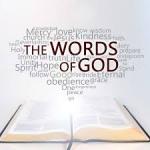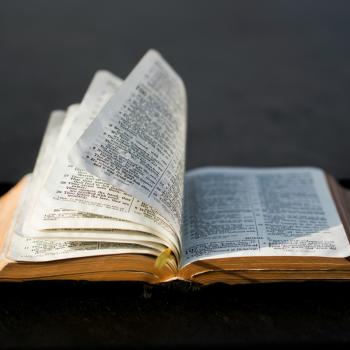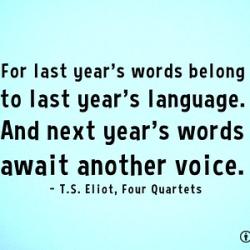The meme of the week in the GOP primary race is Dallas-based mega-church pastor Robert Jeffress' comments labeling Mormonism a cult and denying that Mitt Romney is Christian. Jeffress made the remarks following the Values Voter Summit in which he endorsed Rick Perry and then clarified his controversial statements in television interviews with, among other outlets, Anderson Cooper. LINK
I confess that Jeffress' comments interested me more than they infuriated me. It's certainly not news to Mormons that some evangelicals—and other Christian groups, as well—don't consider us Christian and make us the target of their countercult ministries, and most of us have long since exhausted our supply of outrage at this fact. (It should be noted gratefully that many evangelicals are fair and generous friends to the LDS church.) And it's hard not to pity the hapless Jeffress, grinning weirdly and swallowing his talking points in that awkward interview with an acid Anderson Cooper, who could barely hide his disdain as he fished for the juicy quote.
In his bumbling way, Jeffress attempted to add nuance to his earlier remarks by introducing a distinction between what he called "theological cults" and "sociological cults." Mormonism is the former, but not the latter, he said. This distinction appears to have its origin in the evangelical countercult movement that assumed its contemporary form in the 1960s and 70s. The Southern Baptist Convention, to which Jeffress belongs, maintains an extensive countercult website targeting groups like Mormons and Jehovah's Witnesses. According to this site, a "theological cult" is, in essence, any heretical sect that falls outside historical Christianity as construed by the Convention itself.
For a Baptist pastor to label a group a "theological cult," then, is de facto to define it out of Christianity. Pastor Jeffress appears to hold an idiosyncratic interpretation of the SBC position, suggesting at one point that a "theological cult" is any religious group that can be traced to a single human founder. Many oldline Protestant denominations would presumably qualify as a theological cult under this definition, including Lutheranism, Calvinism, and indeed the Baptist movement itself.
In contrast to these "theological cults" are what Jeffress called the "sociological cults," the sinister Jonestowns and Branch Davidians of popular imagination: authoritarian, isolated, and creepy. Some evangelicals would promptly place Mormonism in this category, but to his credit Jeffress acknowledged that Mormonism is not a sociological cult. Anderson Cooper showed zero interest in exploring the distinction, however, and Jeffress did not exactly press the point. He clearly wants to exploit the frisson of the popular meaning of cult—the sociological meaning—while maintaining plausible deniability behind the narrower theological meaning.
Even Jeffress's narrower definition is tendentious and parochial, and it bears little resemblance to the learned meaning of the word "cult." In academic religious studies, the word is used non-pejoratively to describe the ritual practice and behavioral elements of a religious community; it is related etymologically to "culture." A religious ethnographer, for example, might investigate the "cult formation," or development, of a religious movement as it comes into historical focus. The idea is value-neutral and thus entirely irrelevant to an apologetic attempt to police the boundaries of Christianity. It's a useful term in the context of, say, an ethnographic study of early Church history; it's extraordinarily unhelpful in the context of bombastic political theater surrounding a GOP primary.
Apart from Jeffress's mangled, mean-spirited wielding of the word, though, the episode raises a thorny question for contemporary identity politics: to what extent is any group entitled to absolute self-definition? Mormons, stung by words that, for most of us, call to mind personal instances of exclusion and misrepresentation, instinctively want to stamp our feet and shout, "Who are you to tell us what we are? We are Christian; we are not a cult." Certainly any fair-minded assessment of a community must include—perhaps should begin with—its own self-understanding, self-definition, and self-fashioning. And it's clear from the language Jeffress uses to talk about, for instance, the Book of Mormon, that he does not understand Latter-day Saint tenets at a basic level.
But I'm not convinced that any community, even my own, should expect to control its definition in public discourse absolutely. And I'm not convinced that it's in our own best interest to promote a climate of extreme identity sensitivity in which that kind of control would be possible. After all, Mormons themselves (some of them, anyway) are involved in a cultural struggle for control of the definition of marriage, and most of us would prefer to carry it out on the basis of civil discussion. But civil discussion requires, at some basic level, the prerogative to make reasoned judgments about groups and ideas. If an extreme form of identity politics proscribes a statement like "Mormons fall outside the definition of Christian," it probably also proscribes a statement like "Gay partners fall outside the definition of marriage." The alternative is endless iteration of "Uh-huh!" "Nuh-huh!" that—trust me here, I'm the mother of several querulous children—only divides us further.
I'm not saying that Jeffress was justified in his remarks, nor am I saying that a group's self-definition counts for nothing. But I hope that Latter-day Saints will respond to remarks like the one we heard this week—and we will certainly hear them again before this primary season is over—in a way that promotes rather than chills the exercise of reasoned judgment in public discourse.
10/13/2011 4:00:00 AM





